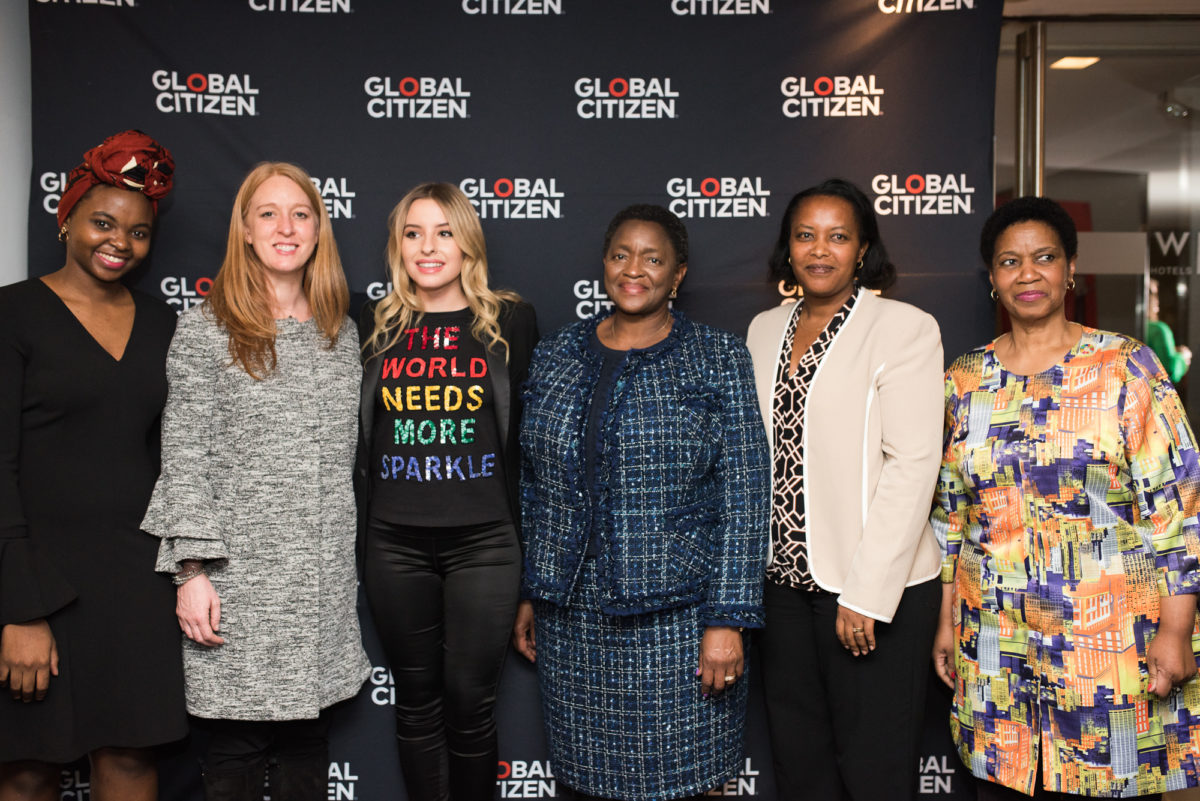We should #Bethegeneration

The 62nd session on the Commission of the Status of Women (CSW) captured the attention of world leaders, advocates and influencers to discuss progress towards gender equality, especially “challenges and opportunities in achieving gender equality and the empowerment of rural women and girls.”
 This year at CSW, Global Citizen used the opportunity to kick off its “Be the Generation” campaign at a side event calling for gender equality where I was asked to speak. This will be a year-long campaign inspired by the legacy of great leaders like Nelson Mandela, to challenge global citizens to raise their voices together.
This year at CSW, Global Citizen used the opportunity to kick off its “Be the Generation” campaign at a side event calling for gender equality where I was asked to speak. This will be a year-long campaign inspired by the legacy of great leaders like Nelson Mandela, to challenge global citizens to raise their voices together.
As an advocate for improved nutrition, the campaign really speaks to me, because advocating for nutrition must be more than just a hashtag or a report launch. It is a challenge and a call to action that we will be the generation to see the end of all forms of malnutrition.
This is what compels me to share my story and that of others on a global stage – to make sure that this call to action is heard by decision makers around the world. CSW allowed for me to share these stories.
My own personal struggle with ill health and the difficulty to access specialized health care made what would have been a six-month issue into a three-year-fight.
During this struggle, if you had asked me what future I envisioned for myself, I would have told you my goal was to get out of that hospital so that I could go back to school and eventually get a job. I had exams to write, ambitions to fulfill and a career to pursue.
In 2016 I met a woman named Saliwe, an experience that really put that question into perspective for me. We met while I was on a trip to the Mumbwa district in Zambia to document a World Food Program project improving nutrition. 20-year old Saliwe and her three children relied on this program, particularly the communal garden, to get the food and nutrition they needed.
When Saliwe was asked this question about her future, her response was: “I just want to get through the day.”
Daring to dream is not an option for so many girls. The day-to-day struggle to just survive takes precedence. Women and girls in many parts of the world live in a system that is not designed to help them thrive – or dream. Unfortunately, Saliwe’s story is not unique:
- More than one billion women and girls do not have access to the adequate nutrition and healthy diets they need to survive and thrive.
- Adolescents have been largely neglected from the conversation, often missed by health services and faced with unique challenges, particularly in the most rural parts.
Sharing Saliwe’s story is critical to enacting change. Sharing stories of the women and girls most at risk of suffering from malnutrition reminds us to continue to hold our leaders and ourselves accountable.
Only by prioritizing critical actions to address the women and girls who are currently left behind can we accelerate progress towards the SDGs, build political leadership and mobilize new and additional resources that will result in improved policies and necessary progress.
We have set nutrition targets that we all need to work towards. Through SDG2 we have committed to end all forms of malnutrition.
We can be the generation that successfully ends all forms of malnutrition – and investing in women and girls’ nutrition is crucial. But we must start by making sure their stories are heard.
Mwandwe Chileshe is a Global Program Associate at 1,000 Days, a Global Health Corps fellow and Global Citizen Youth Advocate. In her role at 1,000 Days, Mwandwe supports the organization’s efforts to mobilize greater resources for global nutrition by supporting the management of ICAN and participating in international coalitions. She previously led the Zambia Civil Society Scaling up Nutrition Alliance, a network that works to improve the status of nutrition in Zambia.
